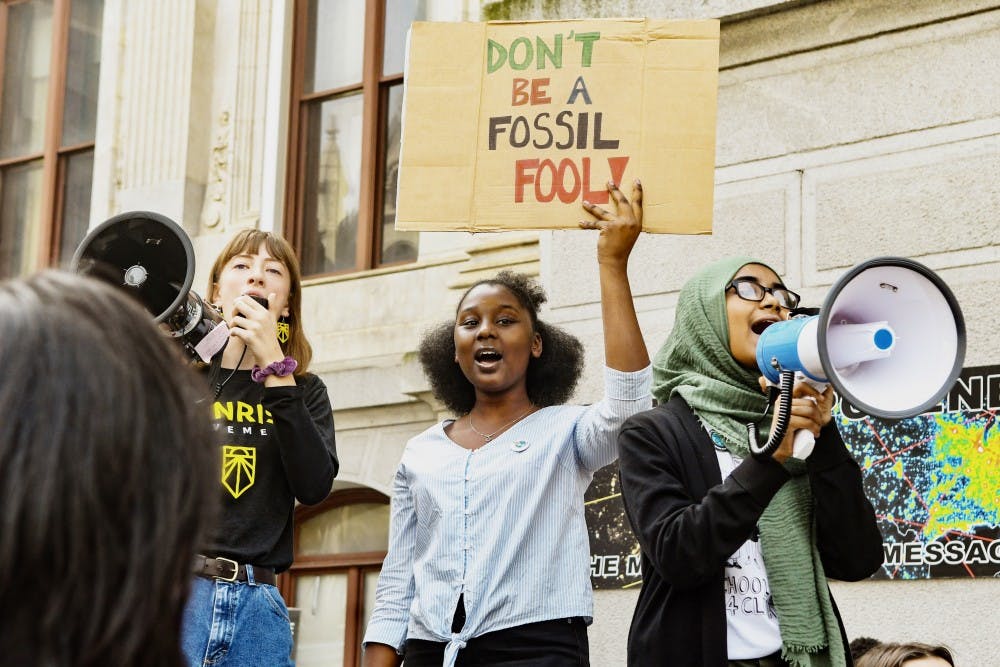Penn Sustainability has released an updated version of its course inventory, a 26-page document that lists more than 300 sustainability-related courses offered across dozens of departments.
The document includes an alphabetical listing by school and department of courses that include a sustainability component. The inventory is designed to expand “the awareness and availability of information about sustainability courses at Penn," according to the document's introduction. Courses range from "Evolutionary Ecology" to "Urban Fiscal Policy" and "Environmental Law."
The document also highlights courses that were developed as part of the Integrating Sustainability Across the Curriculum program, which helps professors include environmental themes in classes by providing them with undergraduate research assistants to help update their existing courses.
To decide which courses to include in the catalog, Penn used the Sustainability Tracking Assessment & Rating System, Sustainability Analyst Madeline Schuh said. This rating system, also known as STARS, is a self-reporting framework managed by the Association for the Advancement of Sustainability in Higher Education.
“They have criteria that help catalog courses that focus on sustainability or related to sustainability,” Schuh said, adding that STARS is a commonly accepted rating framework and is considered “the higher-education-sustainability industry standard.”
Schuh said for the 2019 catalog, Penn Sustainability contacted the course coordinators in each of Penn's departments and asked them to update their listings of courses that met the criteria.
Penn Sustainability sent the course inventory to as many course coordinators as possible to help increase exposure of the document to students, Schuh said. However, it is unclear how many students actually use this resource. Anthropology professor Mark Lycett, who teaches a class on Political Ecology, said he was unaware of the existence of the catalog and had not heard any students mentioning that they used it to find his course.
“I wasn’t aware that this resource exists,” Lycett said, “but it seems like a good idea.”
While Lycett was not notified or consulted when his course was added to the catalog, his class is indeed centered on how human beings act on the environment.
“Issues related to sustainability, development, the theorization of those terms, and the implementation of the history of those terms are really central to the mission of the course,” Lycett said. “It is crucially important for anyone living in this society at this moment to have a sense of the role of their life in the production of the environment and the ways in which that those environments impact them and the future.”
Jane Dmochowski, a senior lecturer in Earth and Environmental Science, teaches several courses that are included in this year’s catalog, including "Introduction to Chemistry," "Oceanography," and "Introduction to Remote Sensing." She said the course inventory can help students interested in the environment gain an interdisciplinary understanding of the issue, engaging with sustainability from the perspectives of different academic fields.
"Anything, whether it's society, economics, or the sciences, doesn’t relate to sustainability unless you start to show the overlaps and how things affect one another,” Dmochowski said.
In 2014, Penn introduced its Climate Action Plan 2.0, which set goals for the University to increase environmentally-focused academic opportunities, make buildings more sustainable, and reduce solid waste. A 2019 report said since 2014, 103 new sustainability-focused courses have been added to the curriculum as part of the Climate Action Plan 2.0, a 220% increase. Despite this, Penn has been criticized for employing only one standing faculty member studying climate science, professor Irina Marinov.









